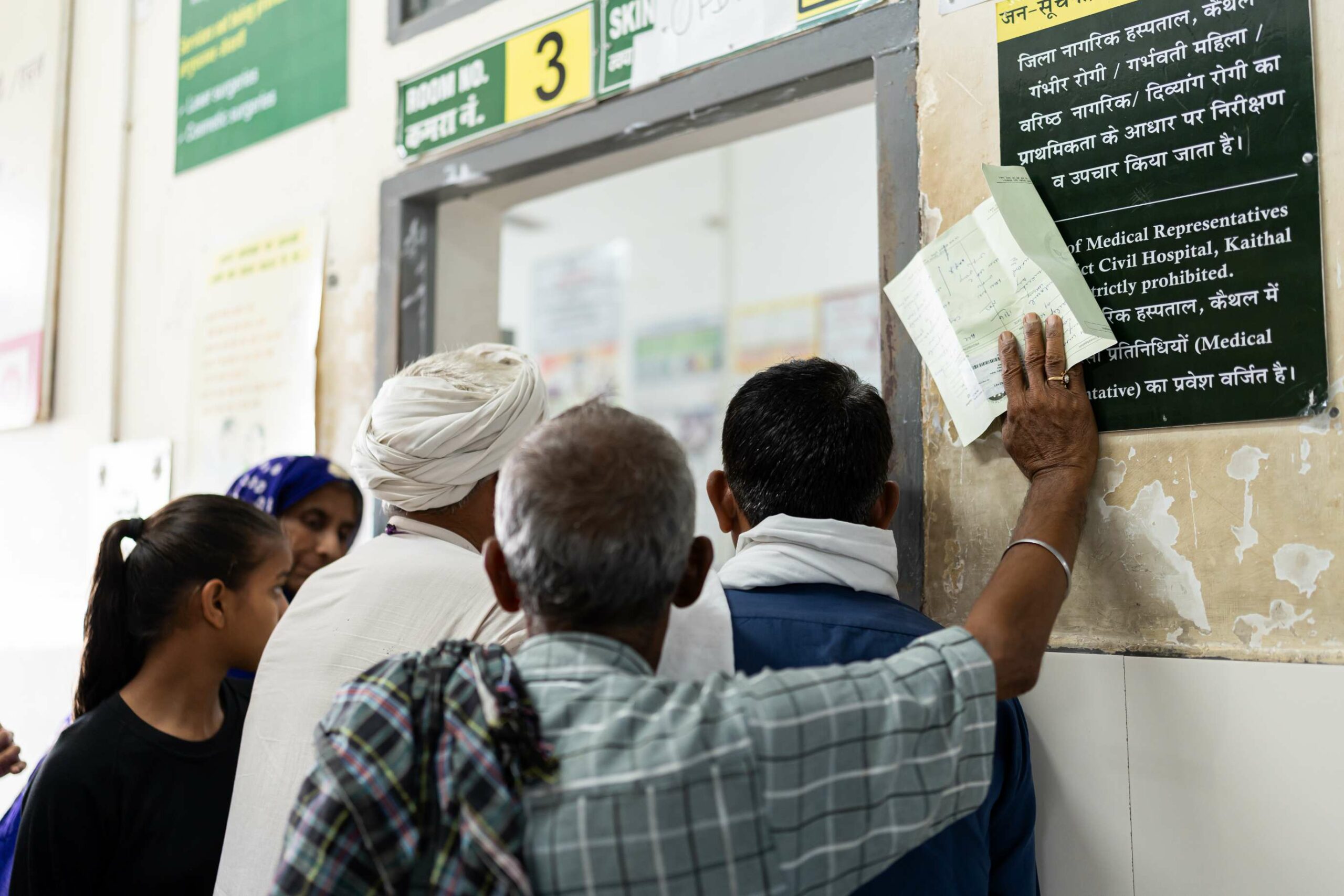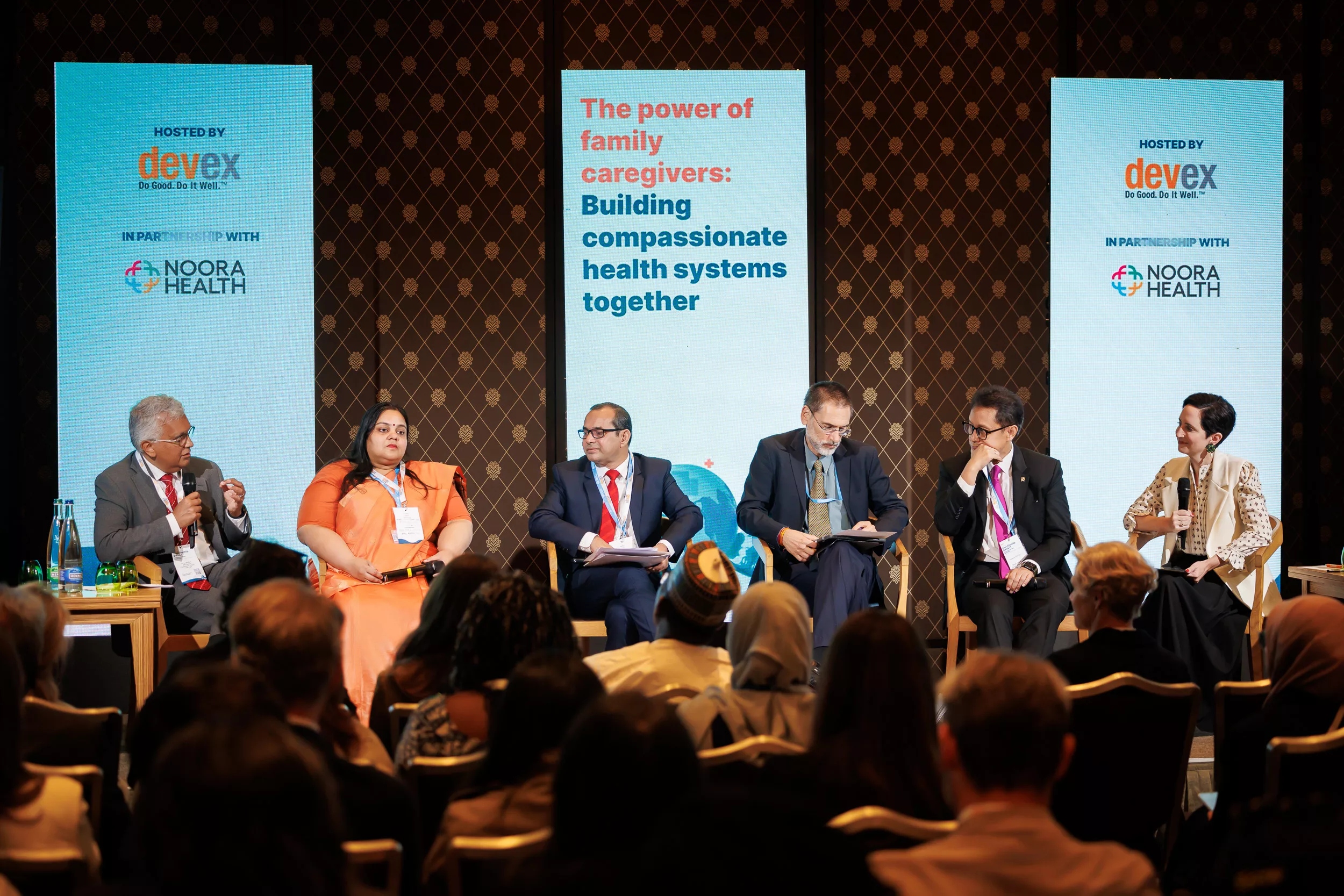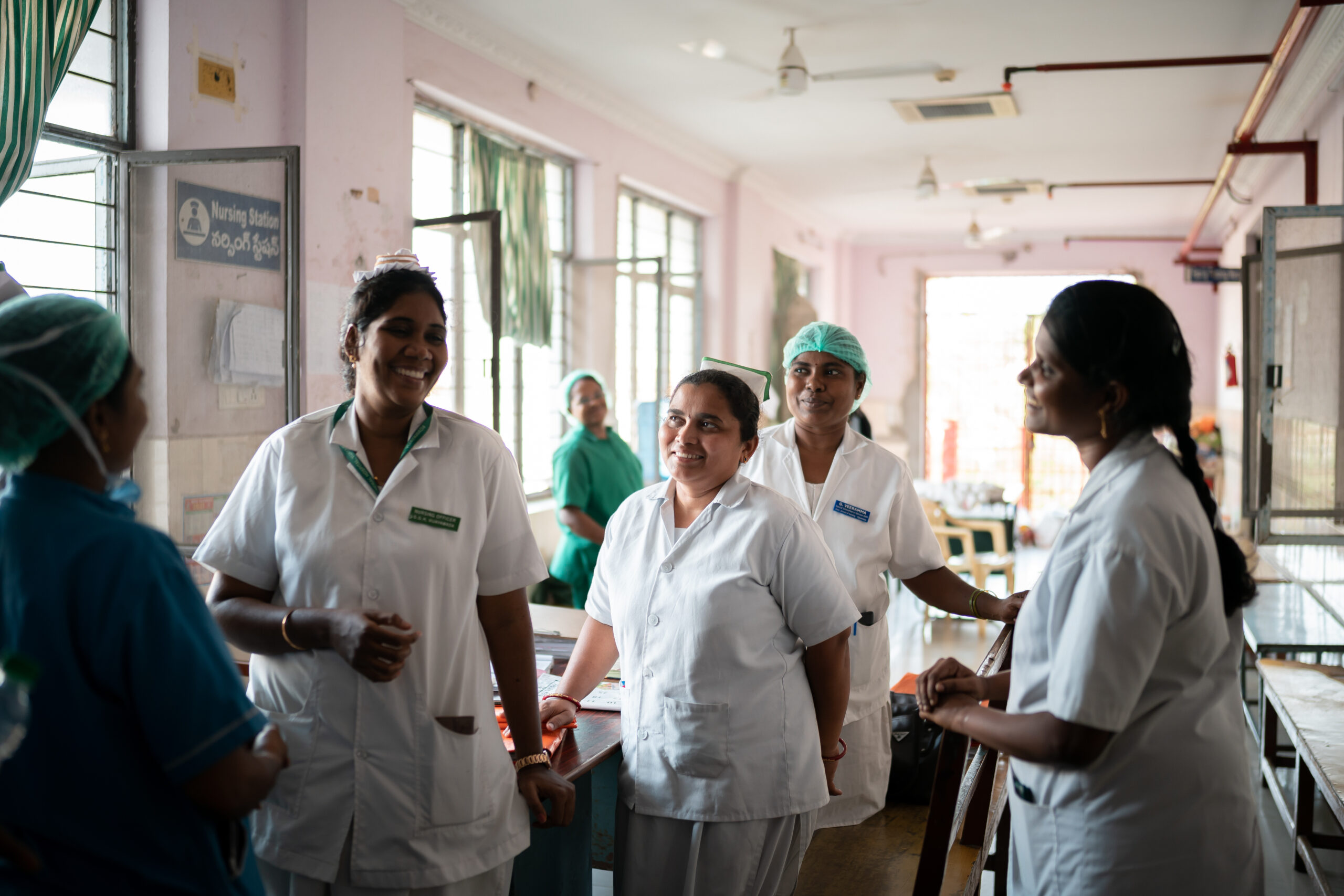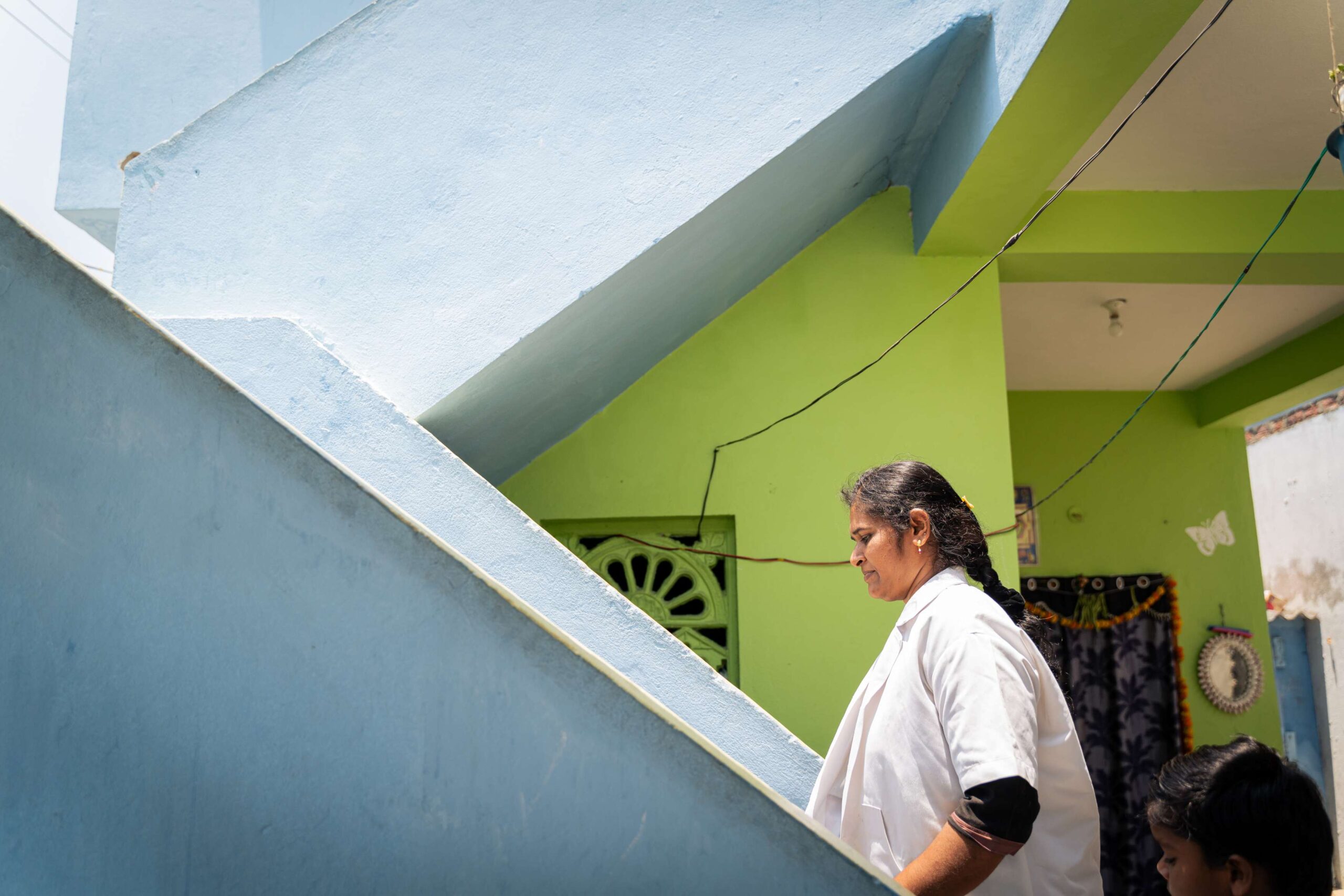
“If you don’t listen, even the best medicine doesn’t work”
A photo story of community, care, trust — through the eyes of Community Health Officer Santhi.
Andhra Pradesh, India
Meet Gollavijayasanthi, known to all as Santhi — a Community Health Officer, a mother of two, a counselor, a listener, and as her patients often call her, “an angel.”
Hailing from the village of Madanur, Santhi begins each day at 5 a.m. with a prayer, preparing herself for the long hours ahead. From preparing school tiffins to visiting expecting mothers at home, from navigating patients’ family conflicts to providing emergency health advice, her day spans worlds — always guided by quiet, unwavering conviction and service.
In the communities she visits, people don’t just come to her for medicine; they come to be heard, to be understood, to be comforted. Over the last 14 years, she has become more than a health worker — she’s a trusted confidant people eagerly wait for everyday.
In this intimate photo essay, Santhi takes us through her day, sharing not just what she does, but how she sees, feels, and heals — all in her own words.
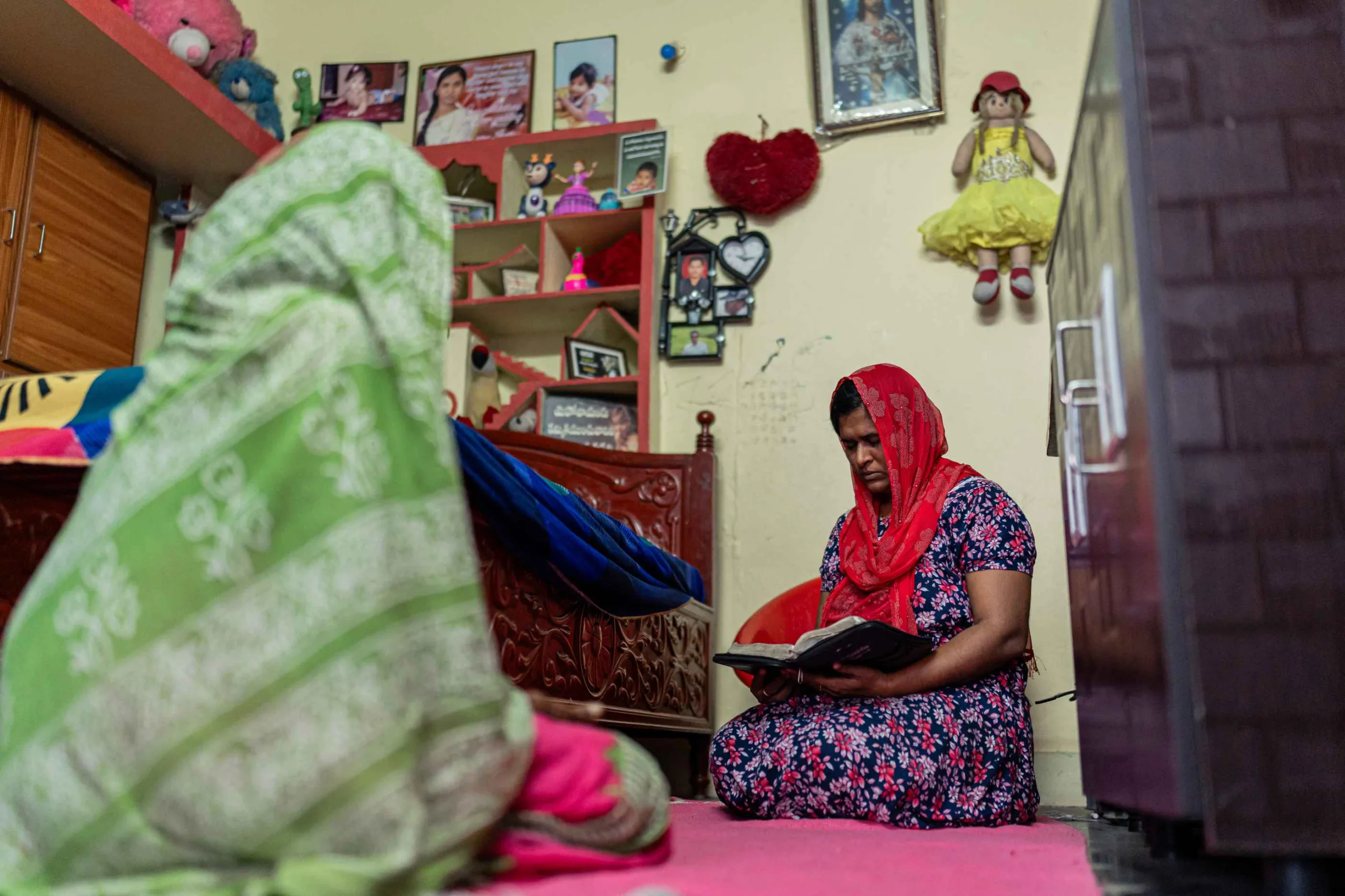
“Every morning at five, I wake up, pray, and read my Bible. Without that, I can’t begin my day. I post a message from Jesus on my WhatsApp story because even my non-Christian friends wait for it. They say it brings them peace. I believe if I do good, God sees it — not the medical officer, not society. That’s why I keep showing up. Not for praise. For Him.”
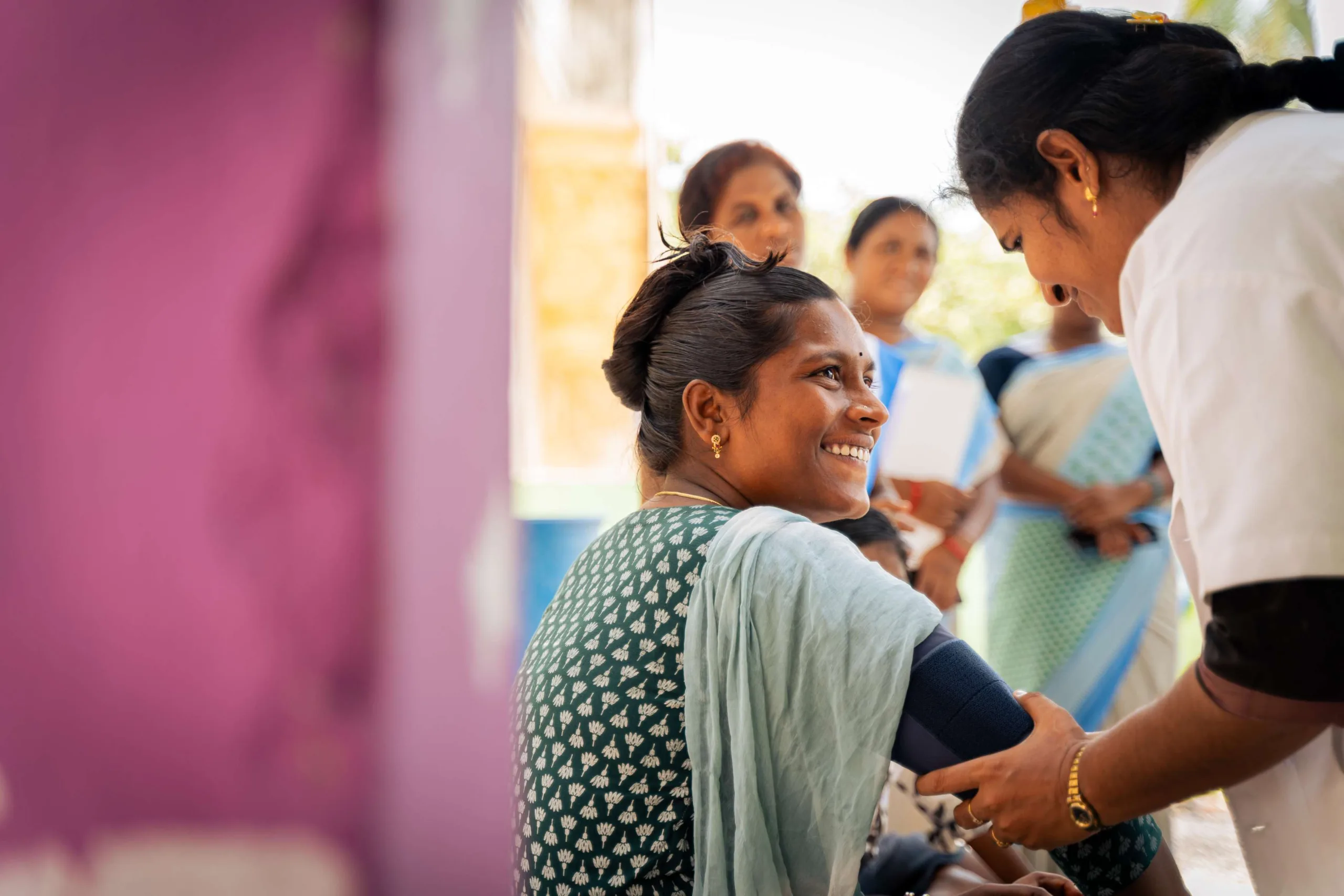
“Patients come to me not just for medicines — they sit for half an hour to share their family matters. They leave with both treatment and peace.
People think we only give tablets, but we listen to their home problems, their fears. That is also part of the treatment. During my nursing training, we were taught that treatment comes after listening. If you don’t listen, even the best medicine doesn’t work.”
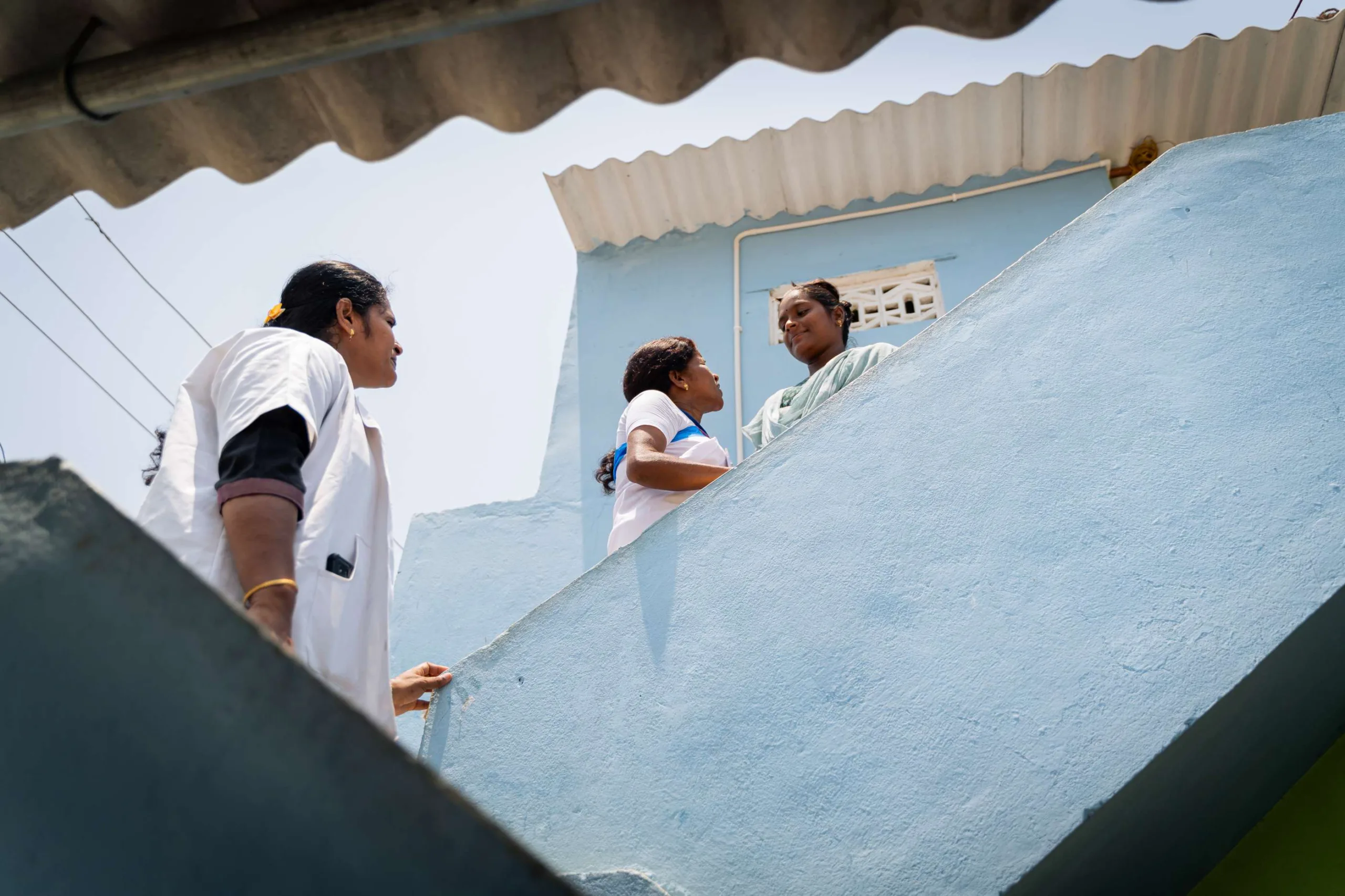
“ASHA workers are my backbone. They know the people, the area, and they guide us. We are relatively new here — I’ve only worked in this area for the last two years. But they’ve lived here for 25 years. Before I visit a patient’s home, I ask the ASHA — what’s going on in this house? What are their problems? Then when I enter, I look at their faces, their body language.
In psychiatry, we learned how to understand pain from facial expressions, even before someone speaks. That’s how we connect — not just through treatment, but through understanding.”
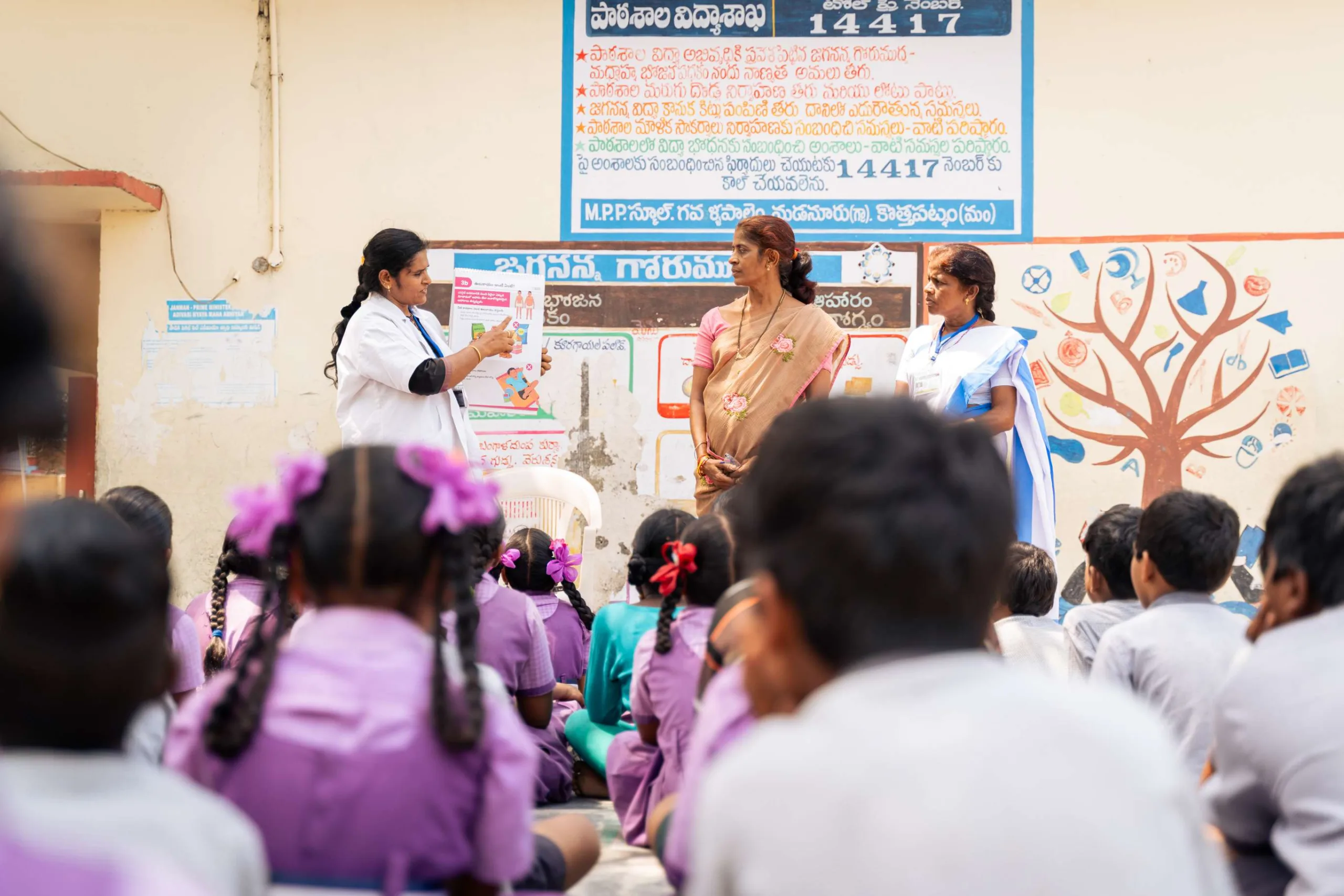
“Before going to schools to teach about good touch and bad touch, I start at home. I sit with my children the night before and explain the topic to them. I show them the same videos and photos I will show the students.
The next day, I teach the same to the school children. Even primary school girls — I explain slowly, in a way they understand.
After one session, one or two girls came forward and told the teacher about what was happening to them at home.
That’s when I realized — they are listening. They understood. And they trusted us enough to speak up. That’s why I keep teaching. It matters.”
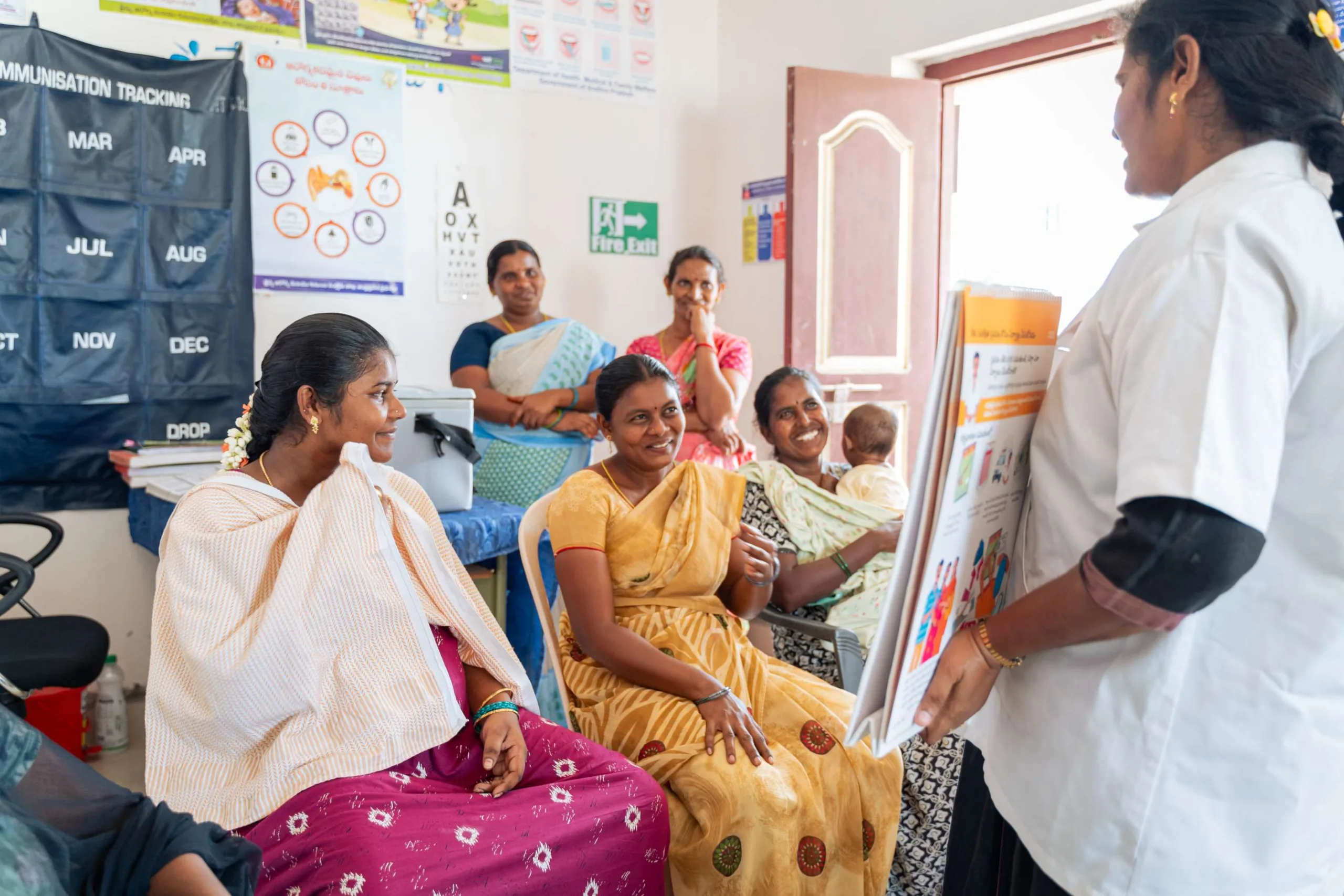
“Each day, I see a success story. Earlier, mothers weren’t going to the hospital. But now, after our counseling, we see even women from remote Adivasi communities go to the hospital for their delivery. That is a big change.
We teach expecting mothers what to eat, what not to eat, and when to go to the hospital. Some topics are very sensitive — like child marriage or substance abuse — but I talk about them openly.
Flipcharts help so much. Sometimes people don’t understand our words, but when they see the red cross, the green tick, the pictures — they understand. That’s how we teach.
Some sessions are difficult. People ask, ‘Why are you saying this again? What’s the use?’ But later, those same people come back and say, ‘That was helpful.’ One moment of recall — that is enough for me.”
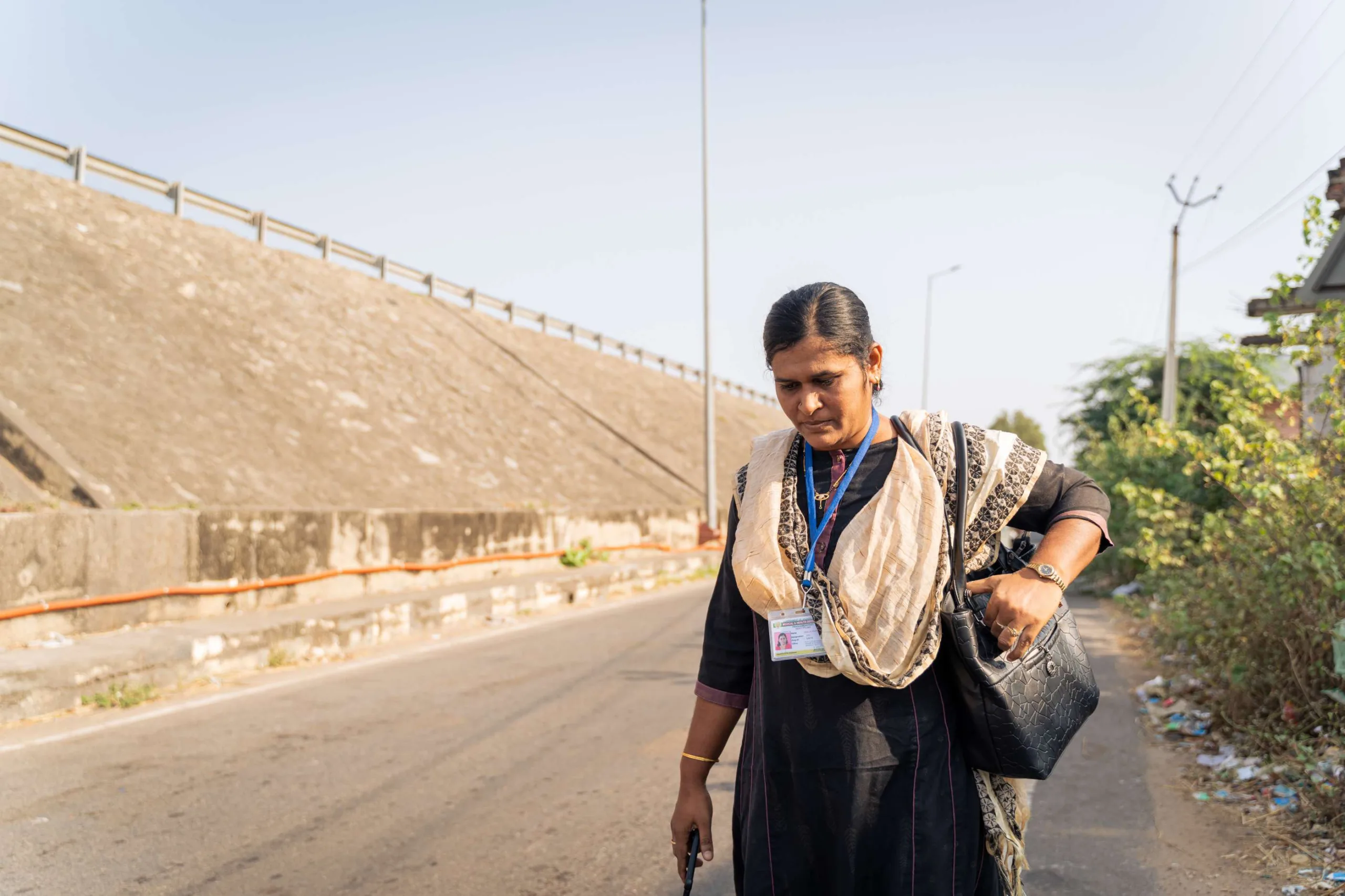
“Health work isn’t about money. It’s about dignity, humanity, and service. Even when a patient’s family doesn’t care for them, we do. I’ve done bowel care, dressed wounds, everything. Not because someone told me to, but because the person needed it.
I worked till the day before my delivery. Nine months pregnant, still doing my duty. The work doesn’t stop. I believe that if I take a salary, I must do the work fully. Even if no one is watching, God is watching.”
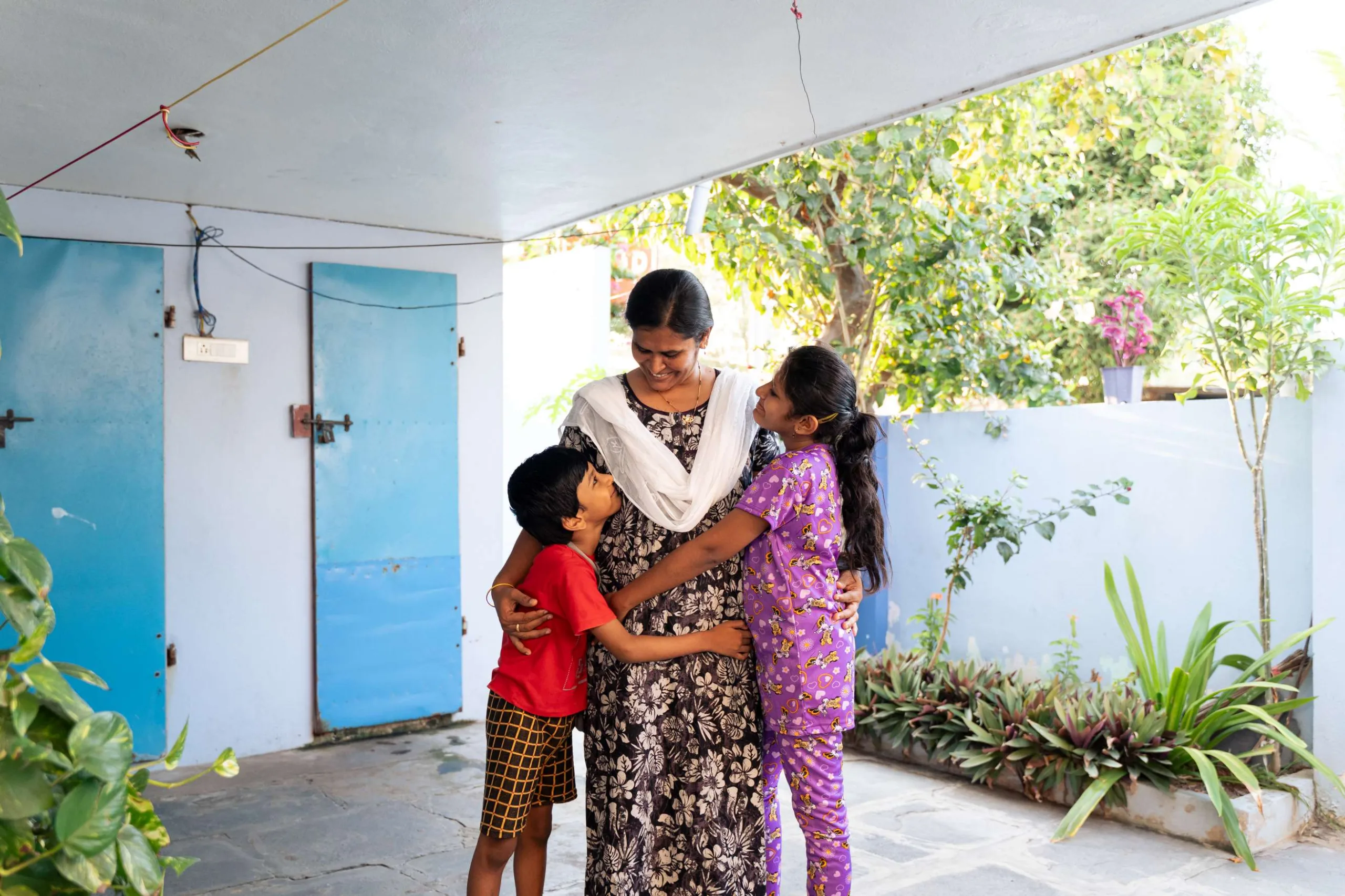
“I want my children to learn from how I live, not just what I say. I tell my son, ‘Don’t quarrel. Be calm. Listen to your teacher.’ My daughter is more disciplined — she needs fewer reminders.
When I scroll on my phone, my son says, ‘Why can’t I?’ So I put it away and play with them. Children don’t learn from instructions. They learn by watching. They’ve seen me work, and now they say they want to be a nurse or a doctor too.”
Santhi doesn’t consider herself a leader, but the people around her might disagree. In their eyes, she’s more than a community health worker — she’s a familiar face, a comforting presence, and a force of change. Santhi shows us what care can look like when it’s grounded in empathy and earned trust. She reminds us that meaningful impact doesn’t always come from loud moments. Sometimes, it walks from house to house, listens without judgment, and returns the next day.
A special thanks to Rachana Deshpande for bringing this story to life, to T. Vasavi, B. Sandeep Kumar, and K. Hemanth Kumar for their support, and to Rajat Agarwal for the photos!

